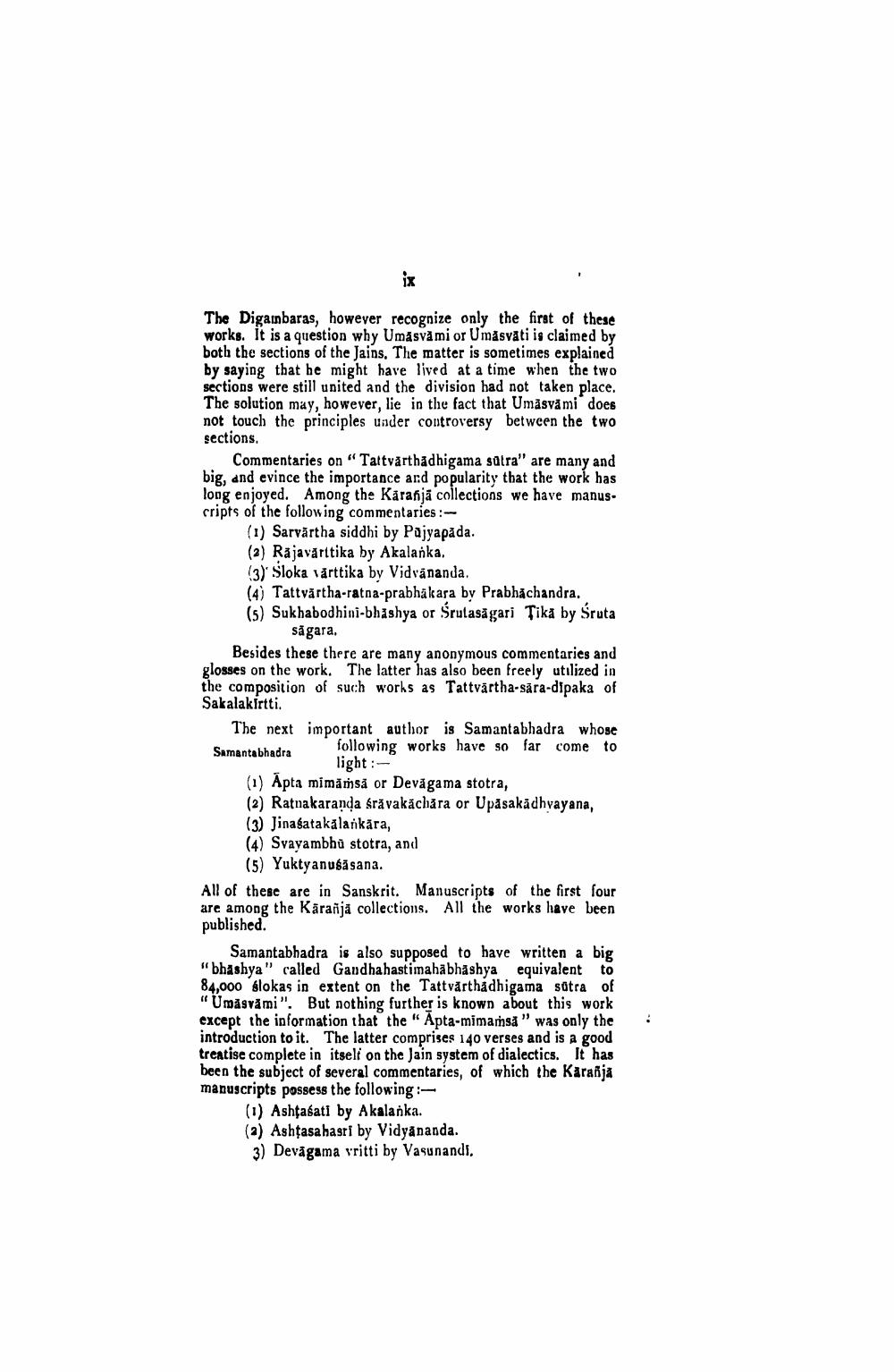________________
The Digambaras, however recognize only the first of these works. It is a question why Umasvami or Umasvati is claimed by both the sections of the Jains. The matter is sometimes explained by saying that he might have lived at a time when the two sections were still united and the division had not taken place. The solution may, however, lie in the fact that Umasvami does not touch the principles under controversy between the two sections.
Commentaries on "Tattvarthadhigama sutra" are many and big, and evince the importance and popularity that the work has long enjoyed. Among the Karanja collections we have manuscripts of the following commentaries:
(1) Sarvärtha siddhi by Pajyapada.
(2) Rajavarttika by Akalanka.
(3) Sloka varttika by Vidvananda.
(4) Tattvärtha-ratna-prabhakara by Prabhachandra. (5) Sukhabodhini-bhashya or Śrutasagari Tika by Śruta
sägara.
Besides these there are many anonymous commentaries and glosses on the work. The latter has also been freely utilized in the composition of such works as Tattvärtha-sara-dipaka of Sakalakirtti.
The next important author is Samantabhadra whose following works have so far come to Samantabhadra light
(1) Apta mimämsä or Devagama stotra,
(2) Ratnakaranda śrävakachara or Upasakādhyayana,
(3) Jinasatakalankara,
(4) Svayambhu stotra, and
(5) Yuktyanusasana.
All of these are in Sanskrit. Manuscripts of the first four are among the Karañja collections. All the works have been published.
Samantabhadra is also supposed to have written a big "bhashya" called Gandhahastimahabhashya equivalent to 84,000 slokas in extent on the Tattvärthadhigama sutra of "Umasvami". But nothing further is known about this work except the information that the " Apta-mimamsa " was only the introduction to it. The latter comprises 140 verses and is a good treatise complete in itself on the Jain system of dialectics. It has been the subject of several commentaries, of which the Karañja manuscripts possess the following:
(1) Ashtasati by Akalanka.
(2) Ashtasahasri by Vidyananda. 3) Devagama vritti by Vasunandi,




